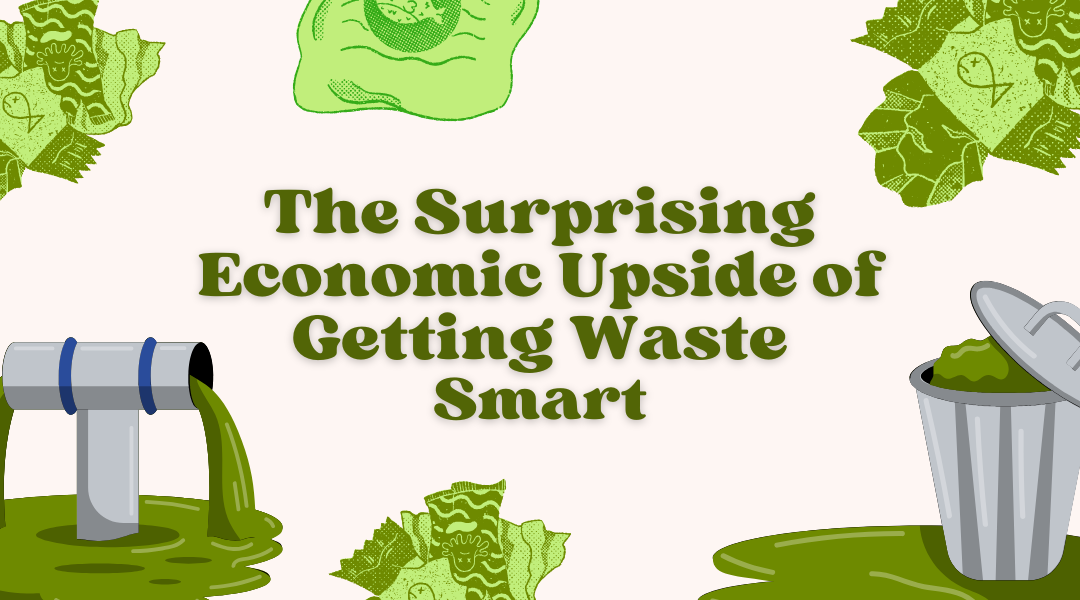Forget the old image of waste management as just garbage trucks and landfills. Today, it’s a dynamic field at the heart of a thriving economy. While the environmental reasons for reducing, reusing, and recycling are clear, a powerful, often overlooked, driver is at play: the compelling business case. Getting a handle on our waste isn’t just good for the planet—it’s fantastic for the bottom line, fostering innovation and creating resilient local economies. Let’s break down how.
1. Job Creation: Building a Green-Collar Workforce
When a community commits to sophisticated waste management, it doesn’t just clean up streets; it builds a new industrial ecosystem. This isn’t about temporary pick-up jobs, but about cultivating a skilled, green-collar workforce.
- Beyond the Bin: Think of the entire chain. We need designers for smarter packaging, technicians for advanced sorting facilities, engineers for composting plants that create high-grade soil, and chemists who develop methods to break down complex plastics. In cities like Amsterdam, companies are springing up that specialize in deconstructing old electronics, recovering precious metals like gold and cobalt, and creating a new, domestic supply chain for manufacturers.
- Localized Impact: This growth happens locally. A recycling facility in Ohio employs Ohioans. A composting operation in Portugal supports Portuguese families. These are stable, non-exportable jobs that strengthen community economies from the ground up.
2. Cutting Costs and Boosting Business Agility
For businesses, smart waste management is a direct lever for improving profitability. It’s a shift from viewing waste as a cost to be disposed of, to seeing it as a resource that’s currently being mismanaged.
- The Circular Model in Action: Consider a furniture company that designs its products for disassembly. Instead of paying to send a broken chair to a landfill, it can reclaim the wood, metal bolts, and fabric, feeding these materials back into its manufacturing process. This drastically cuts down on the need for virgin timber and newly mined metals, insulating the company from volatile raw material prices.
- Trimming the Fat: Landfill taxes are rising globally. By diverting waste through recycling and composting, a large corporation can save millions annually in disposal fees. A hotel chain that implements a robust food waste program, for instance, can significantly reduce the volume and cost of its waste hauling contracts, freeing up capital for other investments.
3. Sparking Innovation and Global Leadership
The push to solve our waste problem is a powerful engine for technological breakthroughs. Nations and companies that lead in this space aren’t just solving a local issue; they’re creating exportable solutions for a global market.
- From Problem to Product: South Korea has become a world leader in food waste recycling, using technology to transform it into animal feed, biogas, and fertilizer. They haven’t just cleaned up their cities; they’ve created a suite of technologies and processes they can now sell to other countries facing similar challenges.
- The Next Frontier: The race is on to develop solutions for hard-to-recycle materials. Startups are now creating enzymes that can digest specific types of plastic pollution, and others are pioneering new materials from agricultural waste, like turning mushroom mycelium into packaging. These innovations represent entirely new sectors with immense economic potential.
4. Elevating Tourism and Brand Reputation
In the age of the conscious consumer, cleanliness is a competitive advantage. For tourist destinations, a reputation for being green and well-managed is no longer a niche appeal—it’s a major economic driver.
- The “Clean & Green” Premium: Travelers are increasingly choosing destinations that align with their values. A coastline free of plastic debris, a city with pristine parks, and resorts that visibly prioritize sustainability attract a higher-spending, more respectful tourist demographic.
- A Ripple Effect: This demand fuels a virtuous cycle. It supports eco-lodges, farm-to-table restaurants that source locally and compost scraps, and tour operators who practice “leave no trace” principles. The entire local tourism economy upgrades, moving away from a low-budget, high-volume model to a more sustainable and profitable one, as seen in places like Costa Rica and Slovenia.
Conclusion: The Bottom Line on a Cleaner Future
The narrative that environmental responsibility is a financial burden is not just outdated; it’s fundamentally incorrect. The evidence points in the opposite direction. Strategic waste management is a powerful economic catalyst. It builds a skilled workforce, slashes operational costs for businesses, fuels a new wave of technological innovation, and enhances the appeal of destinations in a competitive global tourism market. By reimagining our relationship with waste, we aren’t just safeguarding our environment for future generations—we are building stronger, more inventive, and more prosperous economies today. The true cost lies in inaction.
